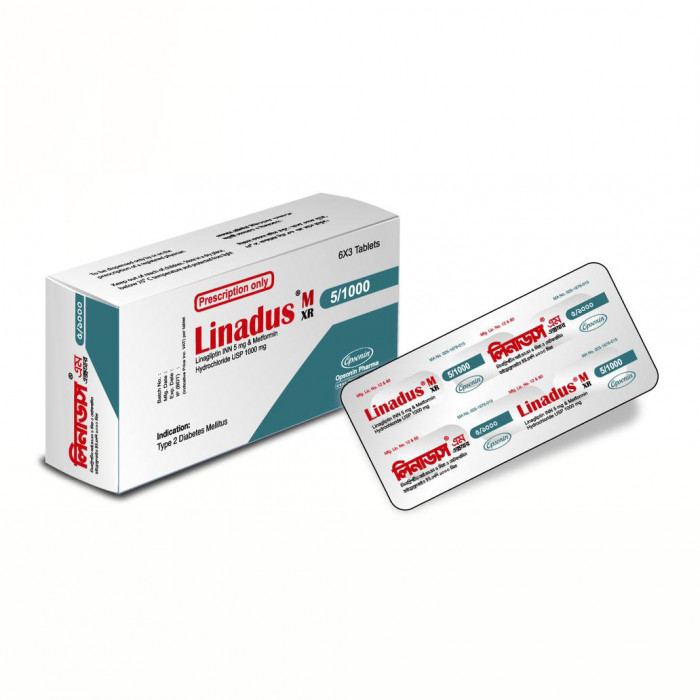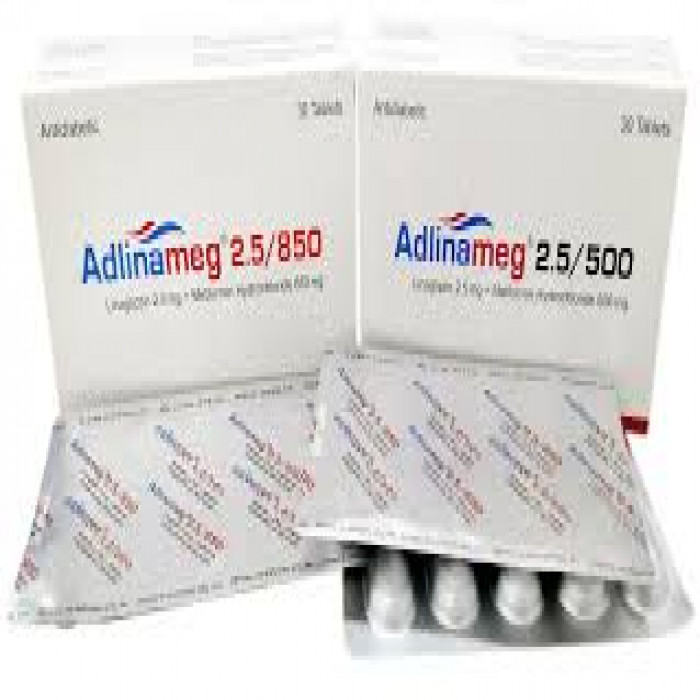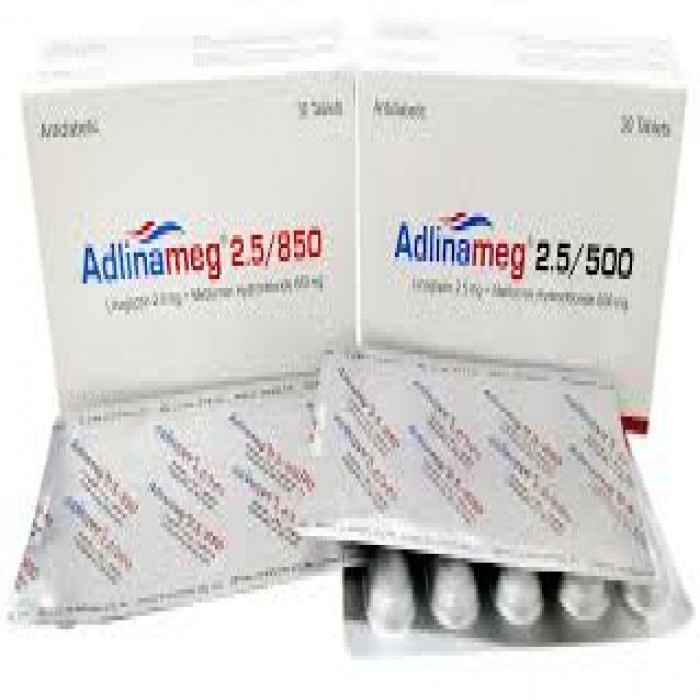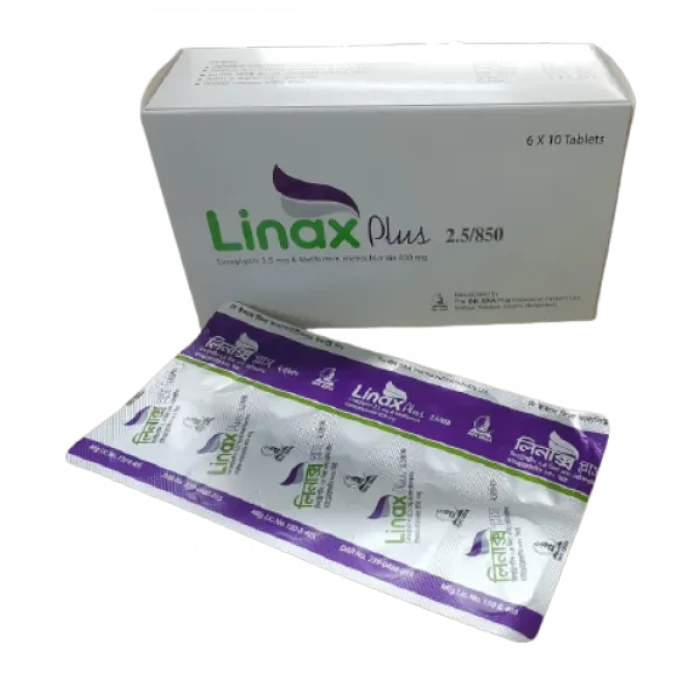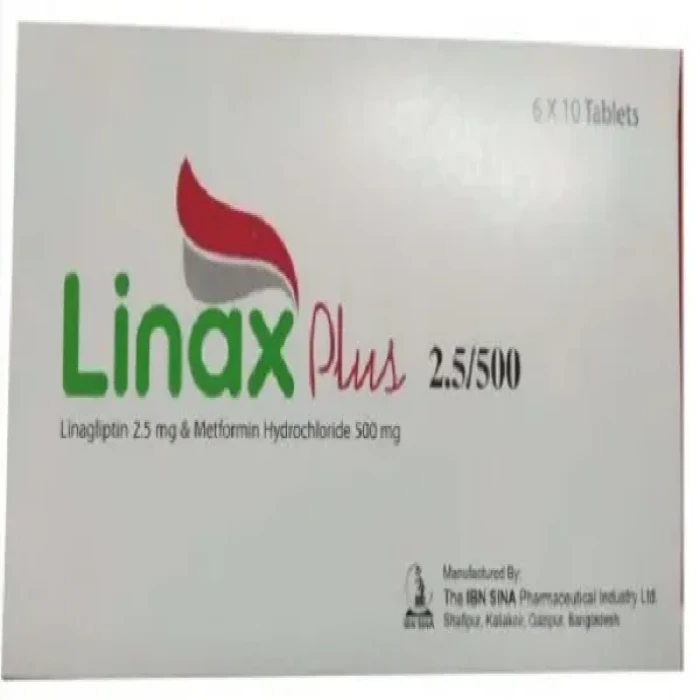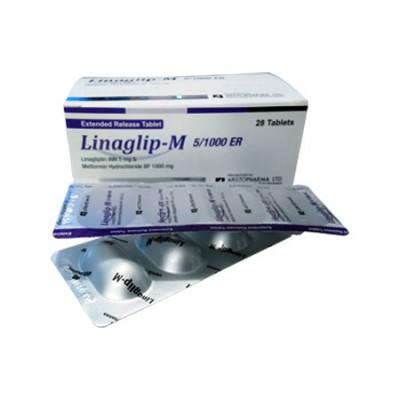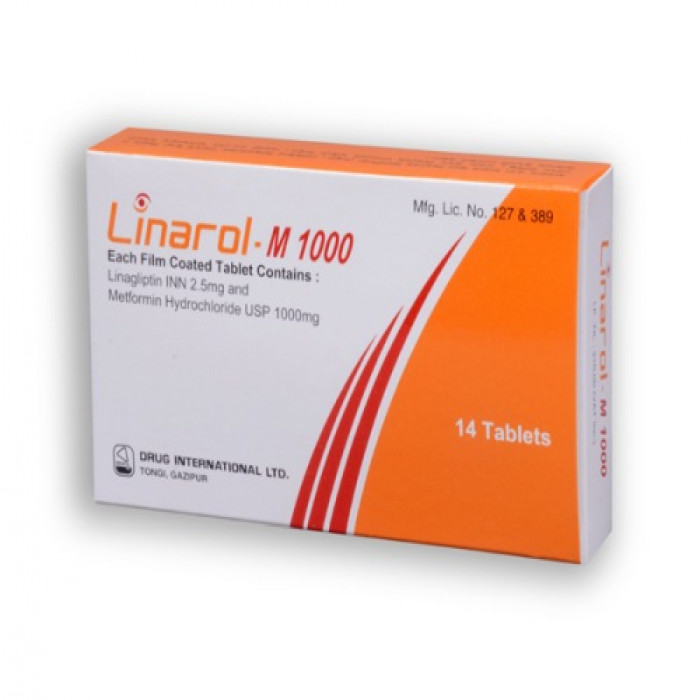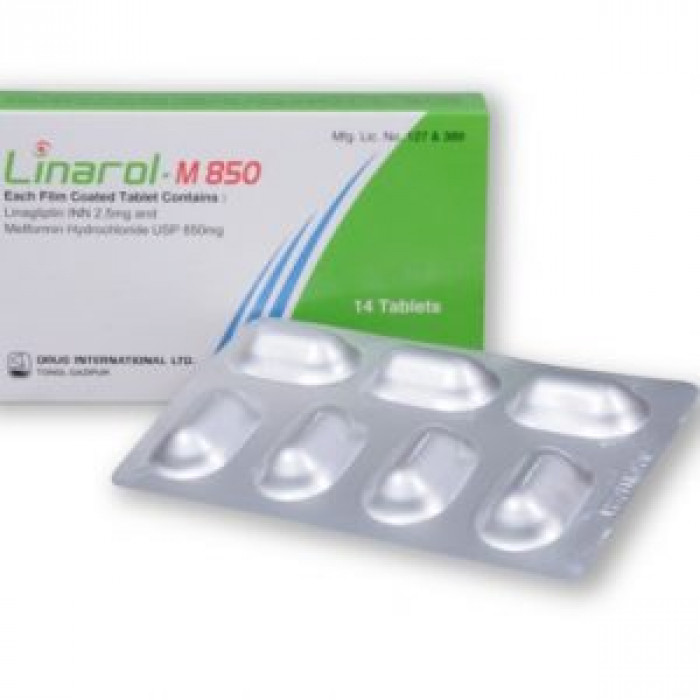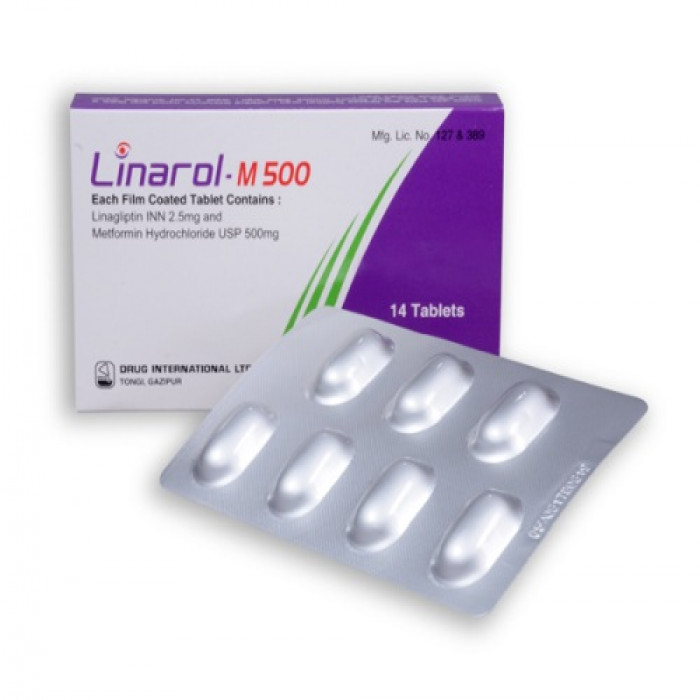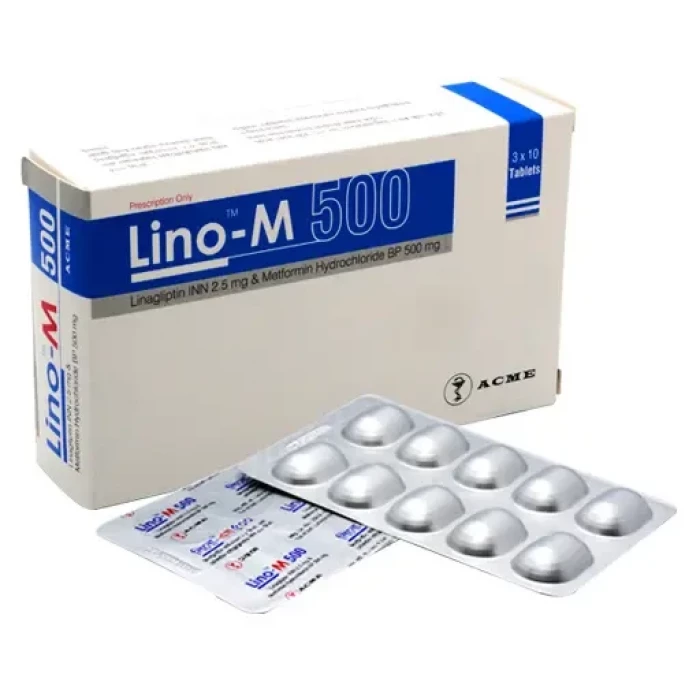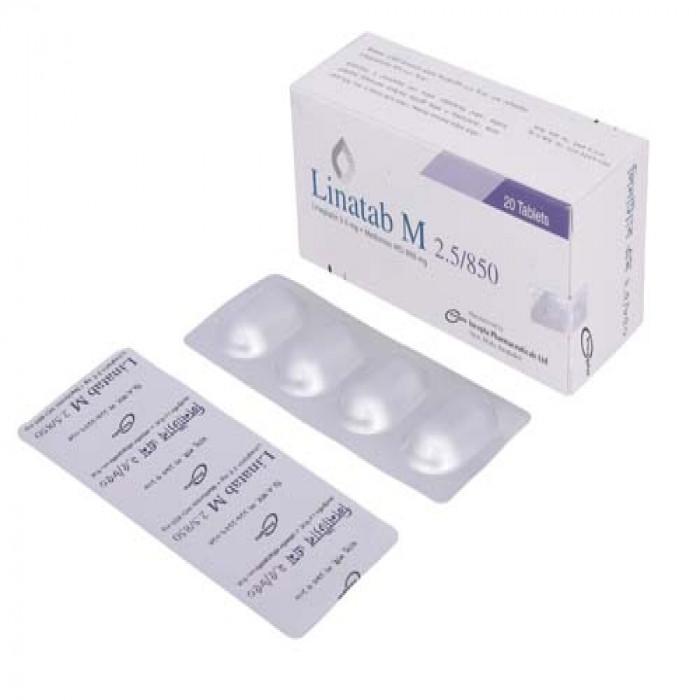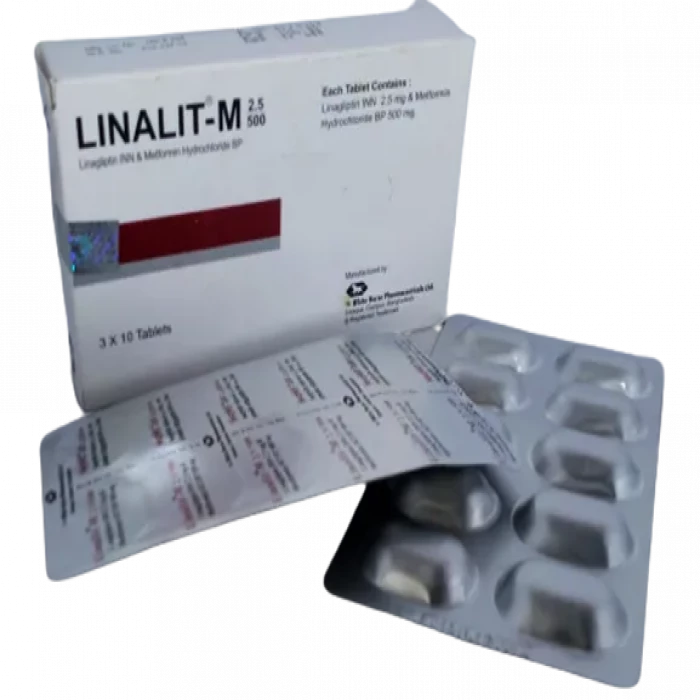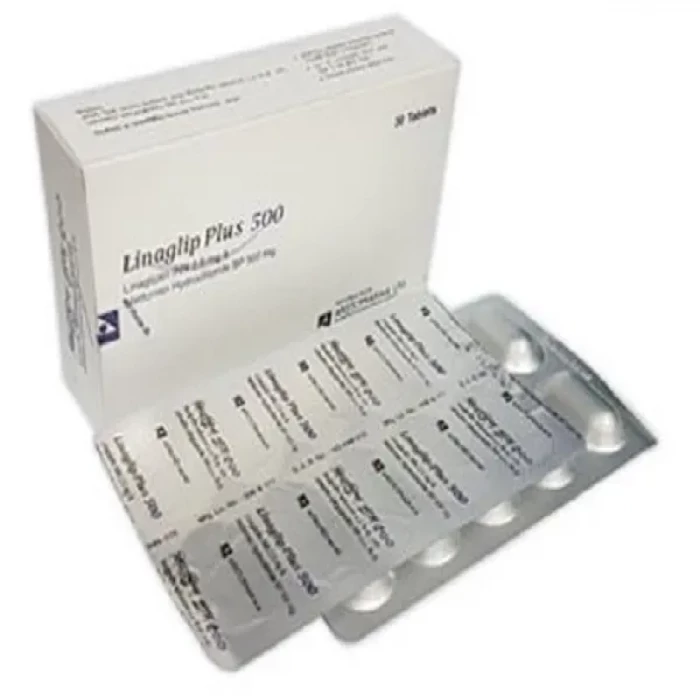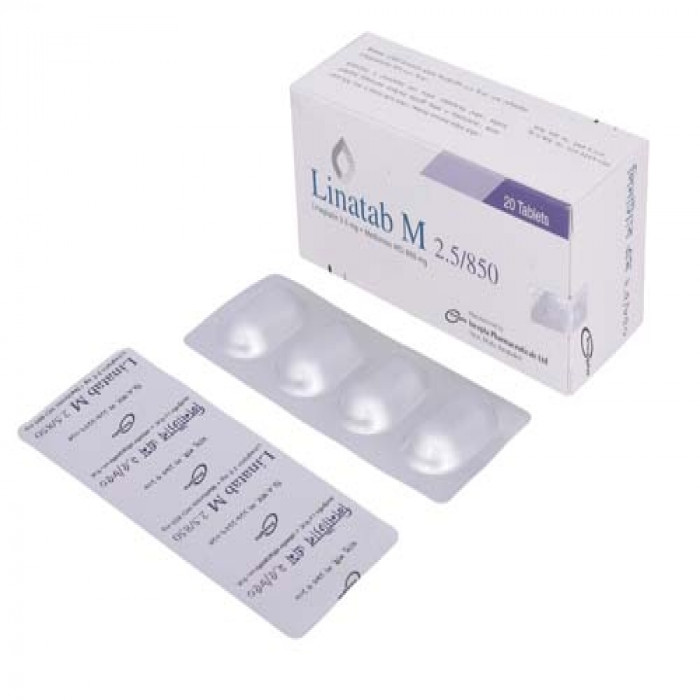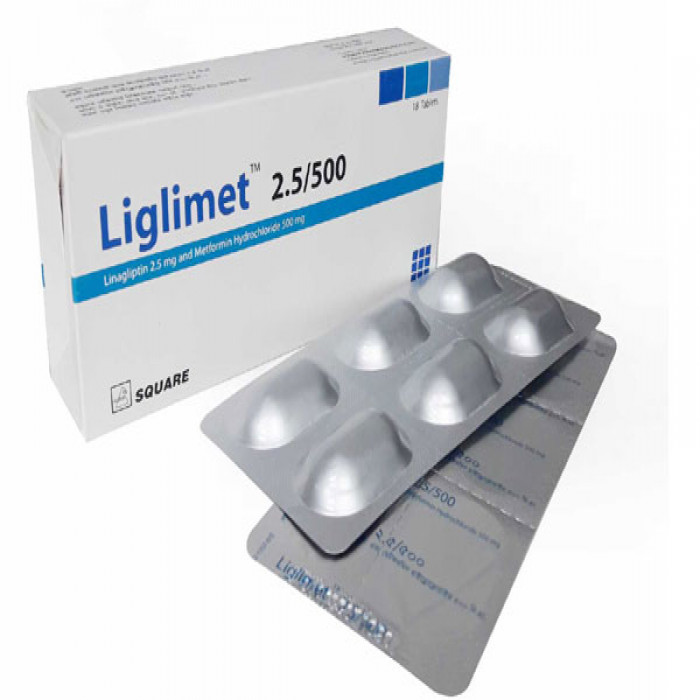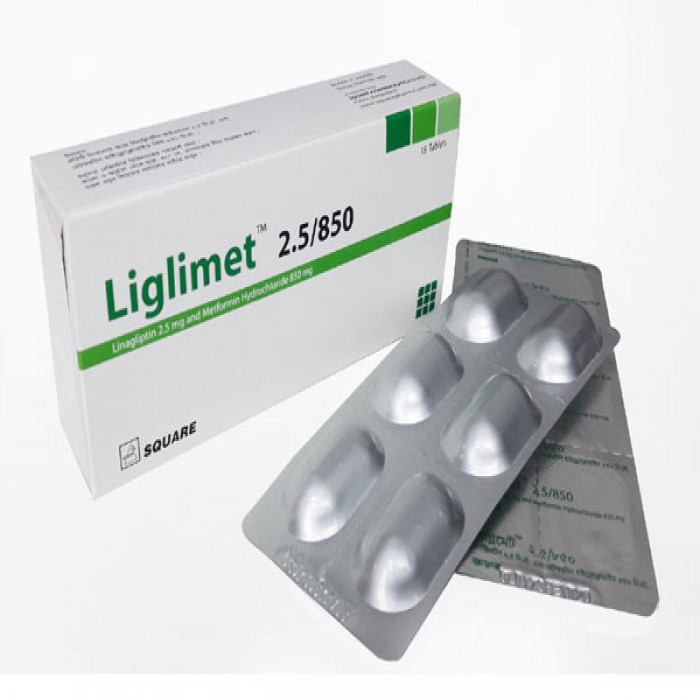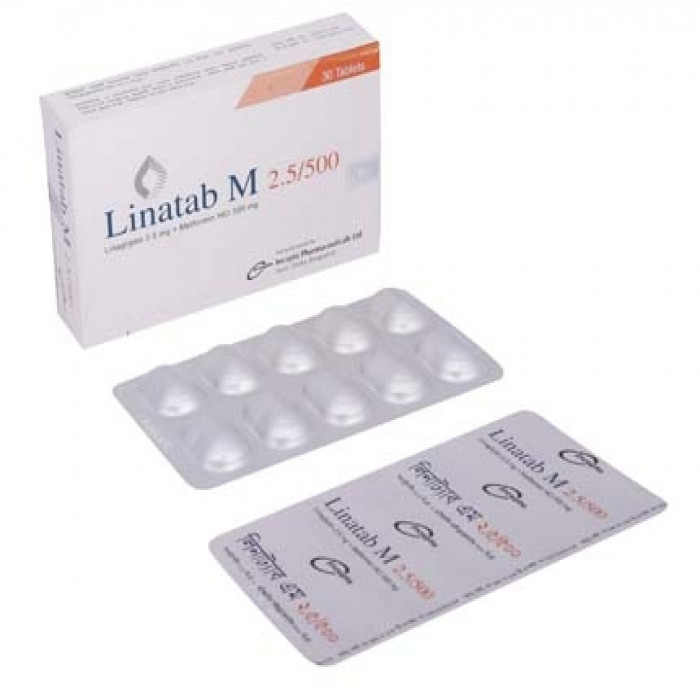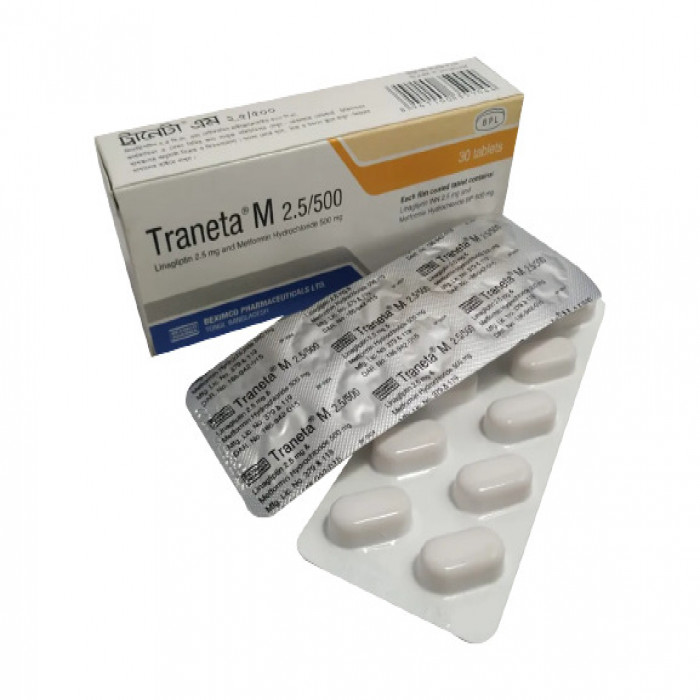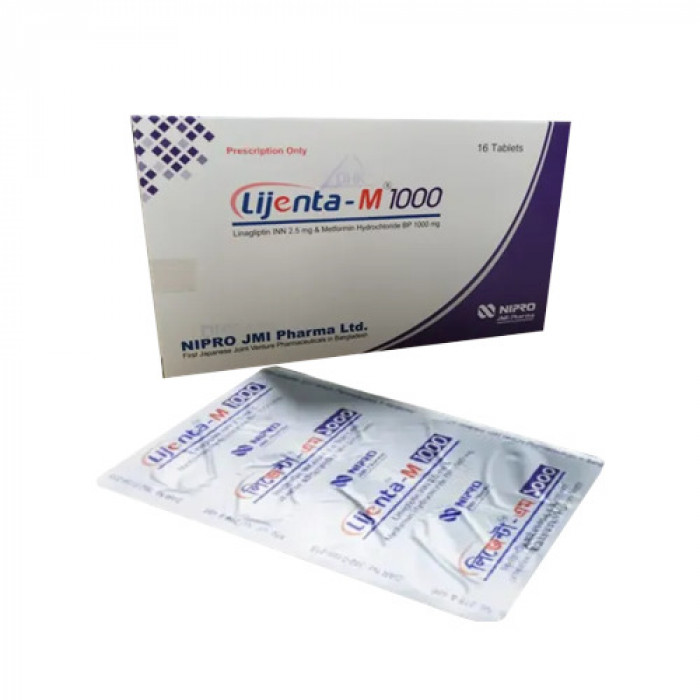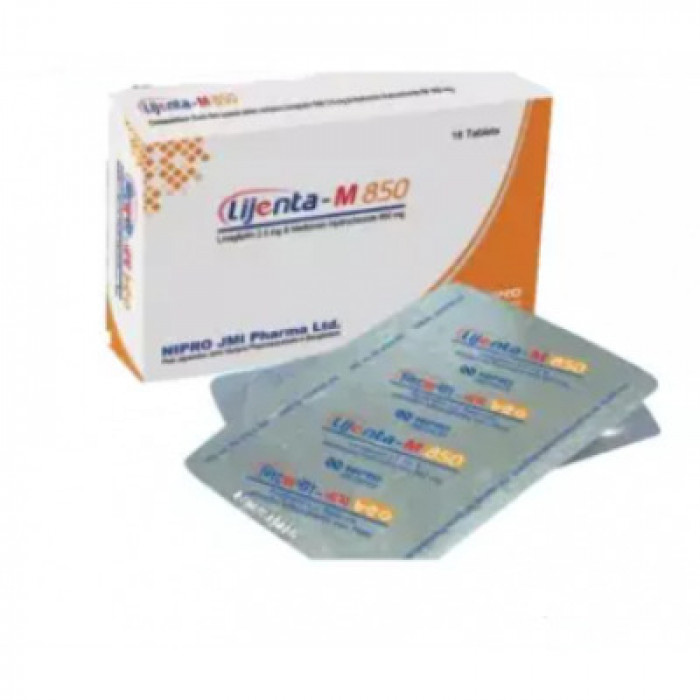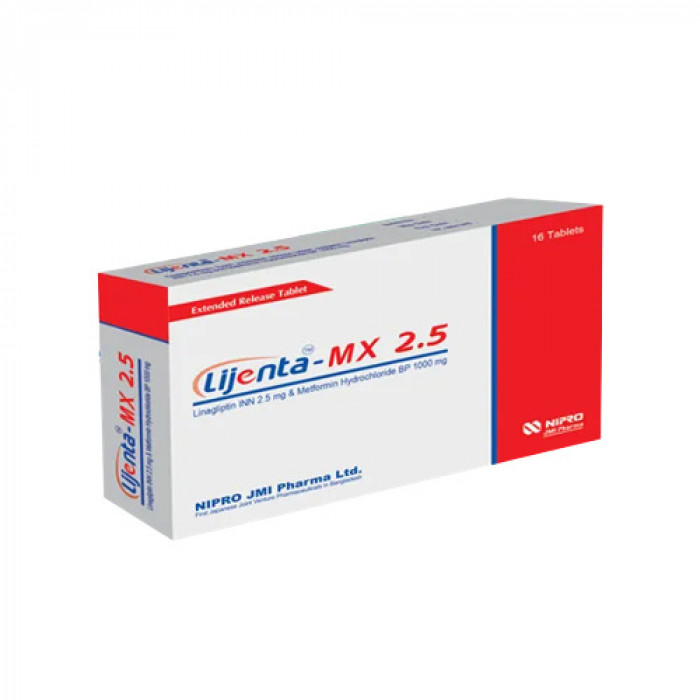
✔ 100% Authentic Product
👁️ Currently Viewing 2052
Lijenta-MX 2.5-8pcs
Generic Name: Linagliptin 2.5 mg + Metformin Hydrochloride 1000 mg Company Name: NIPRO JMI Pharma Ltd.
Discount
Price: ৳ 128
MRP:
৳
136
6%
Off

100% Genuine Products, Guaranteed

Safe & Secure Payments, Always

Fast, Secure & Efficient Delivery

Proper Packaging
 Cash on Delivery - All over Bangladesh
Cash on Delivery - All over Bangladesh Regular Delivery - 12-24 Hours, Dhaka City* Charge Tk.39-59
Regular Delivery - 12-24 Hours, Dhaka City* Charge Tk.39-59 Regular Delivery - 24-48 Hours, Other Cities* Charge Tk.99-110
Regular Delivery - 24-48 Hours, Other Cities* Charge Tk.99-110
 ফ্রি ডেলিভারিঃ - ৯৯৯ টাকা+ অর্ডারে, ঢাকা
শহরে
ফ্রি ডেলিভারিঃ - ৯৯৯ টাকা+ অর্ডারে, ঢাকা
শহরে ফ্রি ডেলিভারিঃ - ২৯৯৯ টাকা+ অর্ডারে, ঢাকার
বাহিরে
ফ্রি ডেলিভারিঃ - ২৯৯৯ টাকা+ অর্ডারে, ঢাকার
বাহিরে
100% Genuine Products, Guaranteed
Safe & Secure Payments, Always
Fast, Secure & Efficient Delivery
Proper Packaging
 Cash on Delivery - All over Bangladesh
Cash on Delivery - All over Bangladesh Regular Delivery - 12-24 Hours, Dhaka City* Charge Tk.39-59
Regular Delivery - 12-24 Hours, Dhaka City* Charge Tk.39-59 Regular Delivery - 24-48 Hours, Other Cities* Charge Tk.99-110
Regular Delivery - 24-48 Hours, Other Cities* Charge Tk.99-110 ফ্রি ডেলিভারিঃ - ৯৯৯ টাকা+ অর্ডারে, ঢাকা
শহরে
ফ্রি ডেলিভারিঃ - ৯৯৯ টাকা+ অর্ডারে, ঢাকা
শহরে ফ্রি ডেলিভারিঃ - ২৯৯৯ টাকা+ অর্ডারে, ঢাকার
বাহিরে
ফ্রি ডেলিভারিঃ - ২৯৯৯ টাকা+ অর্ডারে, ঢাকার
বাহিরে
✅ Description:
Indications
When treatment with both Linagliptin and Metformin Hydrochloride is suitable, this is suggested as an addition to diet and exercise to enhance glycemic control in individuals with type 2 diabetes mellitus.
Pharmacology
Linagliptin is used to help people with type 2 diabetes regulate their blood sugar levels. DPP-4 (dipeptidyl peptidase-4) is an enzyme that degrades the incretin hormones GLP-1 (glucagon-like peptide-1) and GIP (glucagon-like peptide-1). Linagliptin is an inhibitor of DPP-4 (dipeptidyl peptidase-4) (glucose-dependent insulinotropic polypeptide). Linagliptin stimulates the release of insulin from pancreatic beta () cells in a glucose-dependent manner while reducing the production of glucagon from pancreatic alpha () cells in the blood, increasing the concentrations of active incretin hormones.
Metformin Hydrochloride is an antihyperglycemic medication of the biguanide class that is used to treat type 2 diabetes. Both baseline and postprandial plasma glucose levels are reduced. It has a different mode of action than sulfonylureas and does not cause hypoglycemia. Metformin Hydrochloride reduces hepatic glucose synthesis, intestinal glucose absorption, and insulin sensitivity by increasing peripheral glucose uptake and utilization.
Dosage & Administration
Depending on the effectiveness and tolerance of the medication, the dosage of Linagliptin & Metformin immediate-release tablets should be customized. Linagliptin 2.5 mg at a maximum recommended dose of 1000 mg of metformin hydrochloride taken twice daily with meals. To minimize the gastrointestinal (GI) side effects related to the use of metformin hydrochloride, dose escalation should be moderate.
Starting with 500 mg of Metformin Hydrochloride and 2.5 mg of Linagliptin twice daily is advised for patients who are not currently receiving Metformin Hydrochloride medication.
Start with 2.5 mg of Linagliptin and the usual dosage of Metformin Hydrochloride twice a day in patients who are already receiving this medication.
Individual components may be switched to this combination, which has the same doses of each component, for individuals already receiving treatment with Linagliptin and Metformin Hydrochloride.
Linagliptin & Metformin extend-release tablet: The dosage of this combination should be individualized on the basis of both effectiveness and tolerability, while not exceeding the maximum recommended total daily dose of Linagliptin 5 mg and Metformin Hydrochloride 2000 mg. this combination should be given once daily with a meal.
Recommended starting dose: In patients currently not treated with metformin, initiate this combination treatment with 5 mg Linagliptin/1000 mg Metformin Hydrochloride extended-release once daily with a meal.
In patients already treated with Metformin, start this combination with 5 mg of Linagliptin total daily dose and a similar total daily dose of Metformin once daily with a meal.
In patients already treated with Linagliptin & Metformin immediate-release tablet, switch to extend release tablet containing 5 mg of Linagliptin total daily dose and a similar total daily dose of Metformin once daily with a meal.
5 mg Linagliptin & 1000 mg Metformin Hydrochloride extended-release tablet should be taken as a single tablet once daily. Patients using 2.5 mg Linagliptin & 1000 mg Metformin extended-release tablets should take two tablets together once daily.
Interaction
Cationic drugs (amiloride, digoxin, morphine, ranitidine, trimethoprim, etc.): May reduce metformin elimination.
P-glycoprotein/CYP3A4 inducer (i.e. rifampin): The efficacy of this medicine may be reduced when administered in combination.
Contraindications
Metformin Hydrochloride is known to be extensively eliminated by the kidney, notwithstanding Linagliptin's low renal excretion. With the severity of renal impairment, the risk of Metformin Hydrochloride buildup and lactic acidosis rises. As a result, people with renal impairment should avoid this combination. Acute or chronic metabolic acidosis (diabetic ketoacidosis) and hypersensitivity to Linagliptin or Metformin Hydrochloride are additional contraindications.
Side Effects
The most common side effects are nasopharyngitis and diarrhea. Hypoglycemia is more common in patients treated with this combination and sulfonylureas.
Pregnancy & Lactation
Because there are no sufficient and well-controlled trials in pregnant women with this combination or its separate components, it should only be taken if obviously needed during pregnancy. When given to a nursing woman, extreme caution should be exercised.
Precautions & Warnings
Metformin should be stopped immediately in patients with lactic acidosis who are taking it, and supportive treatment should be started every once. Acute pancreatitis has been reported after the drug's release. If pancreatitis is detected, stop taking Linagliptin and Metformin very away. In patients having radiologic tests with the intravascular injection of iodinated contrast materials or any surgical procedures requiring restricted food and fluid intake, temporarily stop taking Linagliptin and Metformin. Because metformin can reduce Vitamin B12 levels, hematologic markers should be checked at least once a year.
Storage Conditions
Keep away from light and heat in a dry area. Keep out of children's reach.
⚠️Disclaimer:
At ePharma, we’re committed to providing accurate and accessible health information. However, all content is intended for informational purposes only and should not replace medical advice from a qualified physician. Please consult your healthcare provider for personalized guidance. We aim to support, not substitute, the doctor-patient relationship.




